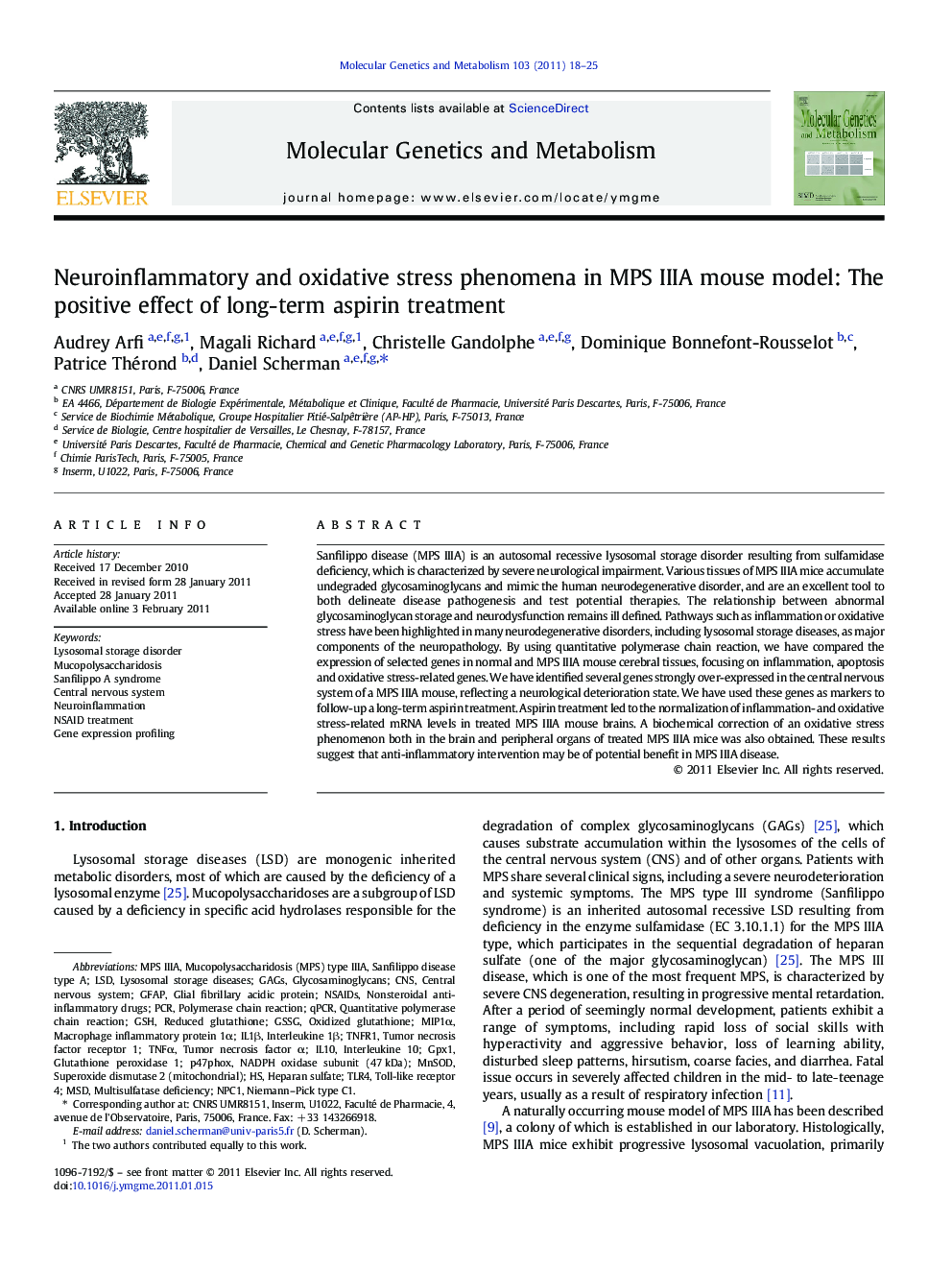| Article ID | Journal | Published Year | Pages | File Type |
|---|---|---|---|---|
| 1999339 | Molecular Genetics and Metabolism | 2011 | 8 Pages |
Abstract
Sanfilippo disease (MPS IIIA) is an autosomal recessive lysosomal storage disorder resulting from sulfamidase deficiency, which is characterized by severe neurological impairment. Various tissues of MPS IIIA mice accumulate undegraded glycosaminoglycans and mimic the human neurodegenerative disorder, and are an excellent tool to both delineate disease pathogenesis and test potential therapies. The relationship between abnormal glycosaminoglycan storage and neurodysfunction remains ill defined. Pathways such as inflammation or oxidative stress have been highlighted in many neurodegenerative disorders, including lysosomal storage diseases, as major components of the neuropathology. By using quantitative polymerase chain reaction, we have compared the expression of selected genes in normal and MPS IIIA mouse cerebral tissues, focusing on inflammation, apoptosis and oxidative stress-related genes. We have identified several genes strongly over-expressed in the central nervous system of a MPS IIIA mouse, reflecting a neurological deterioration state. We have used these genes as markers to follow-up a long-term aspirin treatment. Aspirin treatment led to the normalization of inflammation- and oxidative stress-related mRNA levels in treated MPS IIIA mouse brains. A biochemical correction of an oxidative stress phenomenon both in the brain and peripheral organs of treated MPS IIIA mice was also obtained. These results suggest that anti-inflammatory intervention may be of potential benefit in MPS IIIA disease.
Keywords
NSAIDSIL10GAGsMPS IIIATLR4GPx1MnSODTNFR1Mip1αMSDNPC1GSSGLSDTNFαqPCRp47phoxGFAPGSHIL1βLysosomal storage disorderNeuroinflammationLysosomal storage diseasestumor necrosis factor αNonsteroidal anti-inflammatory drugsCNScentral nervous systemgene expression profilingMucopolysaccharidosisHeparan sulfatepolymerase chain reactionquantitative polymerase chain reactionPCRGlial fibrillary acidic proteinMacrophage inflammatory protein 1αreduced glutathioneoxidized glutathioneglutathione peroxidase 1GlycosaminoglycansToll-like receptor 4tumor necrosis factor receptor 1
Related Topics
Life Sciences
Biochemistry, Genetics and Molecular Biology
Biochemistry
Authors
Audrey Arfi, Magali Richard, Christelle Gandolphe, Dominique Bonnefont-Rousselot, Patrice Thérond, Daniel Scherman,
